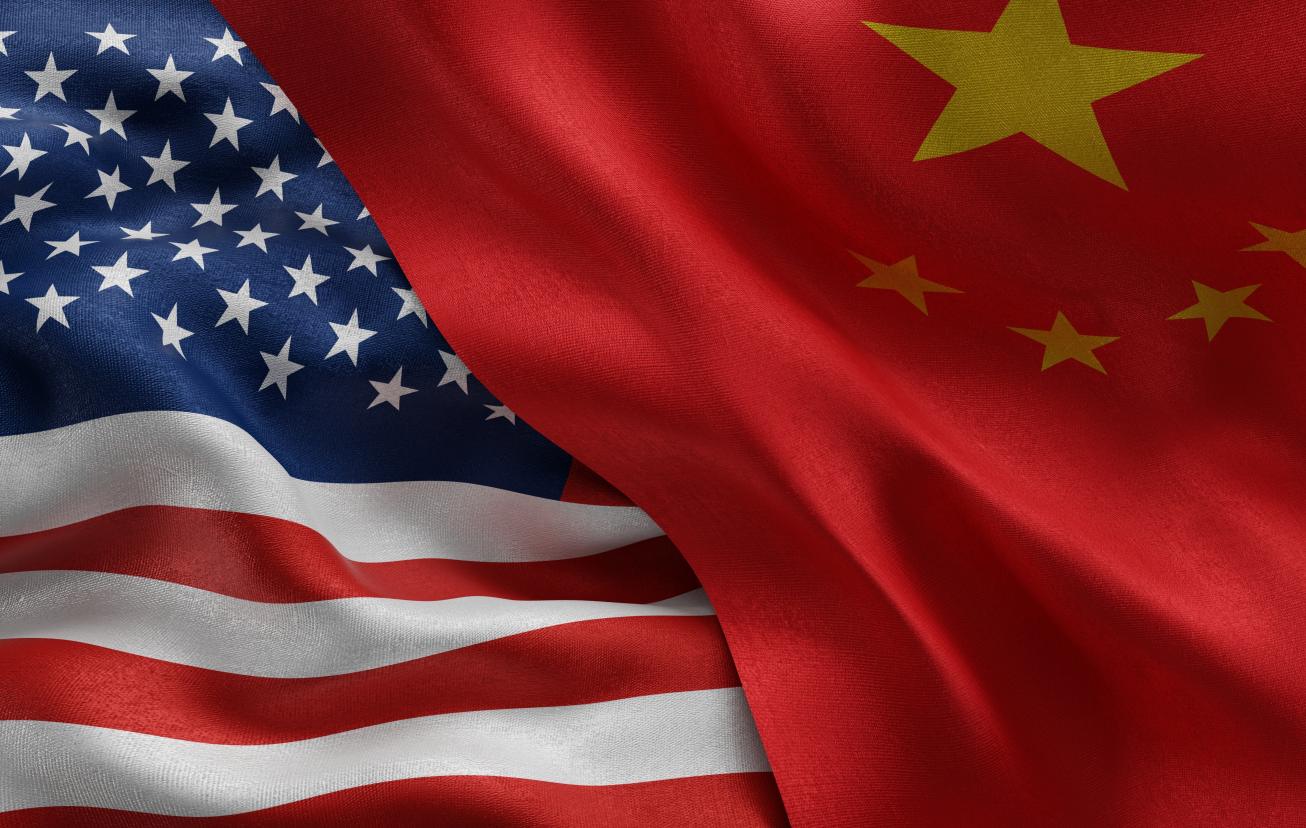U.S.-China Tariff Cuts: Is the 2025 Stock Market Sell-Off Officially Over?

The broader market indexes soared on Monday, May 12, in response to news that the U.S. and China would pause their reciprocal tariffs on most goods for 90 days -- a move that built on the momentum from the trade deal framework that the U.S. and U.K. revealed at the end of last week.
As of Monday's close, the S&P 500 (SNPINDEX: ^GSPC) was down just 0.6% year to date -- an astonishing rebound considering the index was down by more than 15% on the year at the nadir of its sell-off in early April.
While it's great to see portfolio balances recover, those gains will matter little if they are fleeting, and investors are likely wondering if this bounce is the real deal or a head fake.
Either way, it's important to focus on quality companies during volatile periods. But here's why I think the worst of the 2025 stock market sell-off may be over, and what I'd recommend you do if the market keeps rallying.
An end in sight
There's no perfect science for knowing when a sell-off is about to start nor for gauging when one is over. But there are some simple indicators you can use to gauge market sentiment.
The simplest is the relationship between stock market sectors. When investors are optimistic about the outlook for the economy and corporate profits, growth-focused and cyclical sectors like tech, consumer discretionary, communications, financials, and industrials tend to do well. But when investors are fearful, then defensive and "safe" sectors such as utilities, consumer staples, and healthcare usually outperform the benchmarks.
Similarly, investors often turn to hard assets like gold during times of uncertainty. At one point in late April, gold prices were up by over 30% year to date while the S&P 500 was down more than 12%.
Another good indicator to watch is the CBOE Volatility Index, commonly known as the VIX. It measures the implied volatility of short-term options on the S&P 500. If investors are willing to pay more for a call option because they think the market will go up a lot in the short term, or a put option to protect against downside risk, then that will lead to higher volatility.
The VIX was at its lowest point of the year when the S&P 500 was near its all-time high in late February. Then, shortly after President Trump unveiled his global tariffs on April 2 ("Liberation Day"), the VIX spiked in lockstep with a massive sell-off in the S&P 500.
Data by YCharts.
In the last few weeks, the VIX has been falling and the S&P 500 has been climbing, a combination that could signal that the worst of the sell-off is over.
Great companies can sell off for bad reasons
The last month and a half or so have been a great lesson on the pitfalls of getting caught up in stock market volatility and letting emotions drive your investment decisions. It also shows the degree to which the market despises uncertainty.
The steep tariffs that Trump imposed led to a host of countries imposing their own higher tariffs on U.S. exports. The escalating tensions put the U.S. on the brink of an all-out trade war. Corporate leaders didn't shy away from outlining the effects these tariffs would have on their businesses.
For example, Nvidia said it would be taking a $5.5 billion charge in its fiscal 2026 first quarter. Shares of Apple and Nike got crushed due to their exposure to China, both as a manufacturing hub and as a major market for sales.
However, strong results from top tech companies in the recent earnings season were a reminder that much of the broad market sell-off was based on fears of an economic downturn that had yet to materialize.
Microsoft reported phenomenal results and reaffirmed its upbeat revenue and operating margin guidance.
Meta Platforms ramped up its data center and artificial intelligence investments, and management forecast higher capital expenditures this year.
Alphabet reported steadily rising revenue and high margins. It also raised its dividend.
Outside of big tech, several companies saw their stock prices get crushed for the wrong reasons. For example, American Express reported excellent results and reaffirmed its full-year guidance. Its long-term investment thesis looks stronger than ever with the company expanding its network while displaying impeccable risk management. Yet the stock got clobbered, and its price-to-earnings ratio was compressed to bargain-bin levels.
Microsoft, Meta, Alphabet, and American Express are just some of the many examples of companies that were doing just fine even when trade war tensions were hot, yet their stock prices fell anyway.
Quality wins in the long run
Market sell-offs can be swift and brutal. When your screen flashes red with no end in sight, it's easy to get caught up in fear.
However, companies with strong balance sheets don't need to overhaul their capital spending plans just because new policies in Washington appear liable to throw a wrench in a few quarters of results. Investors can take a similar approach by not overhauling their investment portfolios based on factors that don't pertain to the underlying investment theses of their holdings.
Resisting the urge to take action can be difficult, but I've found that one of the best ways to handle volatility is to invest in a way that limits pressure.
Pressure can come in different forms. But some of the simplest ways to mitigate pressure are to invest with a long-term mindset with money that you won't need anytime soon. Also, stick to holding shares of companies that you understand and that have strong fundamentals. Lastly, accept that rough conditions can get worse before they get better.
The same approach applies when the market is going up. You can eliminate pressure on yourself by recognizing that you don't have to time the very bottom to buy, nor wait to buy stocks until you can get them at incredible prices. Even if you're feeling like you missed out on the bargain-bin prices from recent weeks, that's OK. The real wins come from investing in top companies and holding them over the long term, not from trying to capitalize perfectly on short-term periods of market volatility.
Should you invest $1,000 in S&P 500 Index right now?
Before you buy stock in S&P 500 Index, consider this:
The Motley Fool Stock Advisor analyst team just identified what they believe are the 10 best stocks for investors to buy now… and S&P 500 Index wasn’t one of them. The 10 stocks that made the cut could produce monster returns in the coming years.
Consider when Netflix made this list on December 17, 2004... if you invested $1,000 at the time of our recommendation, you’d have $613,951!* Or when Nvidia made this list on April 15, 2005... if you invested $1,000 at the time of our recommendation, you’d have $796,353!*
Now, it’s worth noting Stock Advisor’s total average return is 948% — a market-crushing outperformance compared to 170% for the S&P 500. Don’t miss out on the latest top 10 list, available when you join Stock Advisor.
*Stock Advisor returns as of May 12, 2025
Suzanne Frey, an executive at Alphabet, is a member of The Motley Fool’s board of directors. American Express is an advertising partner of Motley Fool Money. Randi Zuckerberg, a former director of market development and spokeswoman for Facebook and sister to Meta Platforms CEO Mark Zuckerberg, is a member of The Motley Fool's board of directors. Daniel Foelber has positions in Nike and Nvidia. The Motley Fool has positions in and recommends Alphabet, Apple, Meta Platforms, Microsoft, Nike, and Nvidia. The Motley Fool recommends the following options: long January 2026 $395 calls on Microsoft and short January 2026 $405 calls on Microsoft. The Motley Fool has a disclosure policy.








